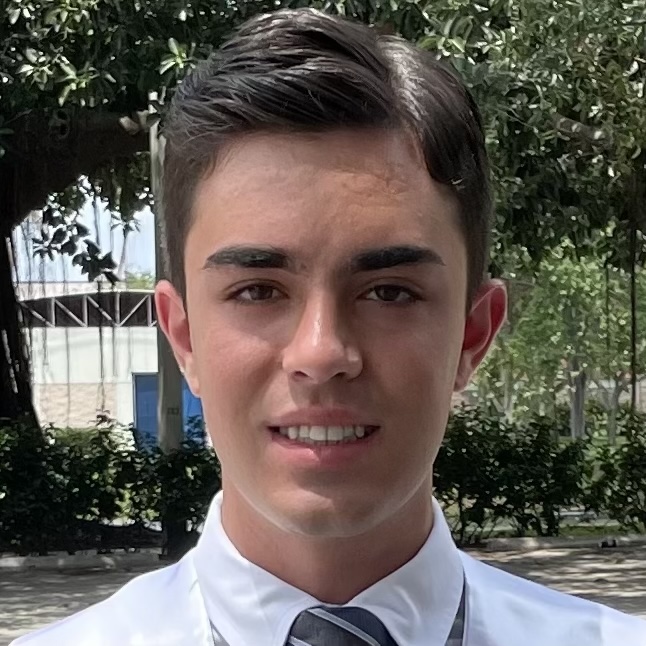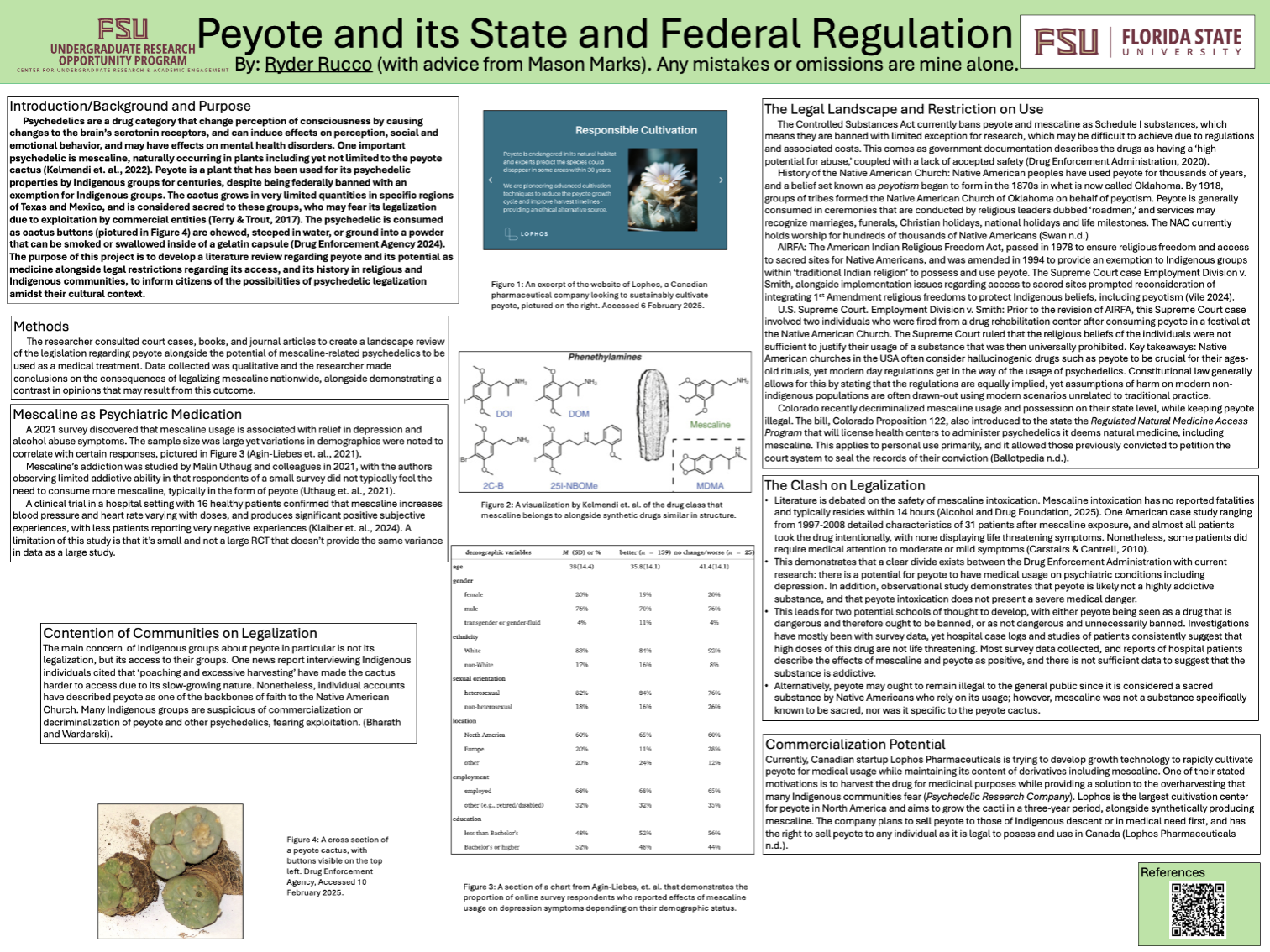Research Symposium
25th annual Undergraduate Research Symposium, April 1, 2025
Ryder Rucco Poster Session 4: 3:00 pm - 4:00 pm/ Poster #176

BIO
I am a freshman studying Finance from Boynton Beach FL, with aspirations to study and practice law in the future. I am adding a Spanish minor and may consider a double major. In my free time, I write for the Undergraduate Law Review at Florida State, and I tutor English to an immigrant family. I also am part of the Mock Trial general body, and the National Residence Hall Honorary. My UROP assistantship with Dr. Marks allowed me to pursue my interest in how Constitutional Law affects the American public, while also learning about how a drug class that is heavily restricted has demonstrated important perceived health benefits to many people.
Peyote and its State and Federal Regulation
Authors: Ryder Rucco, Mason MarksStudent Major: Finance
Mentor: Mason Marks
Mentor's Department: Law Mentor's College: College of Law Co-Presenters:
Abstract
Psychedelics are drugs that alter consciousness by changing the brain’s serotonin receptors. Mescaline is naturally occurring in plants including peyote, a cactus that faces federal and statewide bans in the USA despite having religious exemptions for the Native American Church. The researcher analyzed legal precedents involving religion, workplace rights, and drug usage, alongside the advent of psychedelics in healthcare, using sources including books, journals, and court cases to create a literature review. Peyote was found to have potential as a treatment for substance abuse and mental illness, following anonymous online surveys, and previous literature alongside a small hospital study suggest that mescaline intoxication isn’t life threatening. Indigenous communities may oppose decriminalization of peyote, which takes years to cultivate, since public use may hinder their access. Federally, peyote is classified as a Schedule I substance under the Controlled Substances Act, which permits usage with very limited exemption. The American Indian Religious Freedom Act was amended in 1994 to provide exemptions to the NAC for peyote ingestion, and Colorado Proposition 122 recently decriminalized mescaline usage and possession while licensing clinics to use mescaline for medical treatments. Limitations include determining whether survey data was representative of correlation or causation and finding research with larger, randomized samples. Future research must address the social conflict between communities regarding psychedelic legalization and determine whether the mental and physical dangers presented by peyote and mescaline warrant the drug being largely prohibited.
Keywords: Psychedelics, Constitution, Law, Peyote, Legal


